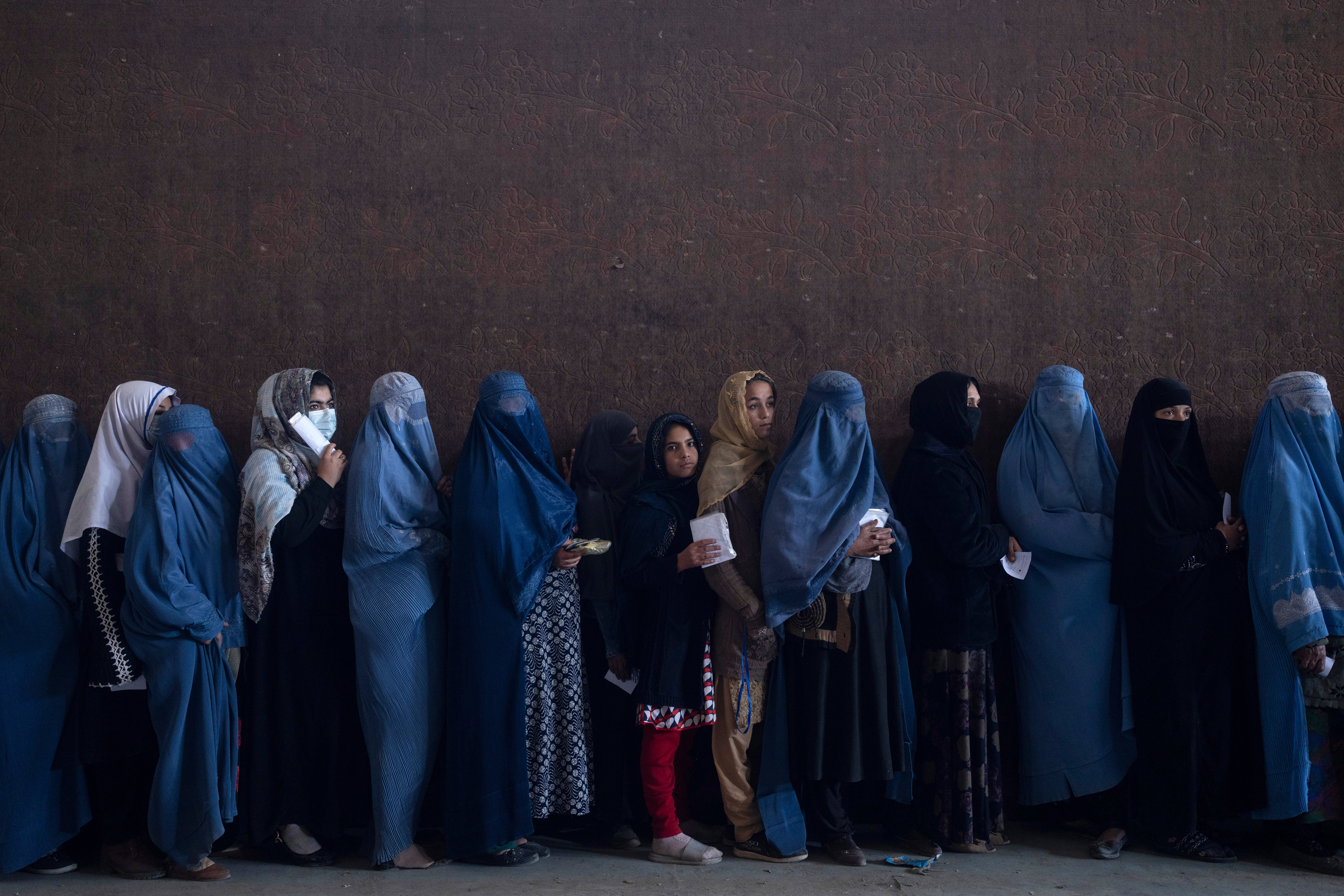The UK and the west need to help Afghanistan now more than ever
Editorial: The situation across the country couldn’t be much worse. But there’s still no sign of any intent to solve this coming migration crisis

The war in Afghanistan may be over, but the humanitarian crisis is about to get worse. The British Red Cross warns that a combination of factors is conspiring to make life in parts of the country unbearable. That is not only a tragedy for the Afghan people, but also for the surrounding countries, principally Pakistan and Iran, who will be faced with a further wave of Afghan refugees and migrants – and for western nations such as Britain, who will have to find ways to offer refugees safe passage to the UK and a path to resettlement and reunion for them and their families.
At the moment, there is little sign of any western or UK intent to solve this coming migration crisis “at source”, and nor is there any evidence that the British resettlement scheme, ironically named “Warm Welcome”, will be up and running before the worst of the weather arrives in the often inhospitable terrain of Afghanistan.
The situation in the country could scarcely be worse. At the risk of rehearsing old arguments, by the time the US-led forces finally retreated, Afghanistan was relatively stable, had an established government over much of the population – albeit with cases of corruption more prevalent than anyone would like – and the economy was recovering. It was far from hopeless. Within a few weeks of the evacuation and the Taliban takeover, all has changed for the worse.
Financial sanctions on the Taliban government have triggered a collapse in the currency and hyperinflation. The banks do not function. A long-running drought means food is scarce, and cuts to aid mean it is not going to become more plentiful. There are disturbing reports of parents selling children to get money for food. Health clinics run by the partner of the British Red Cross, the Afghan Red Crescent, are already seeing malnourished children – some 3.2 million children aged five and under are expected to suffer from acute malnutrition by the end of the year.
All of this, then, in a country once counted as an ally by the United States and its partners. The consequence is that many more Afghans will try to make their way to the west, including Britain. After such a long engagement – 20 years – there are still many Afghan former interpreters, guides, and associates of British forces and civilian organisations who were left behind after the fall of Kabul and chaotic withdrawal three months ago, with The Independent and its readers calling for the government to do more as part of the Refugees Welcome campaign.
Yet the government has still not put a complete rescue and resettlement scheme in place. Victoria Atkins, the minister responsible, pleads that preparations to make a reality of Operation Warm Welcome are proceeding “at pace”, but then again, the cold weather and risk of famine are also drawing in.
As hardship grows, so do the “push” factors driving Afghans from their homeland. It seems only a matter of time before some, frustrated by the sluggishness of the legitimate asylum application process in Pakistan or elsewhere, will take their chances with the people-smugglers, and end up in a boat in the English Channel. Some may simply lack the evidence to back up a genuine fear of persecution, including execution.
Yet if they ever do manage to make it to Britain, they will be criminalised under Priti Patel’s latest futile clampdown on migration, in effect a renunciation of the 1951 European Convention on Human Rights (which has nothing to do with the EU). Having, for example, been married to someone who worked for the British in Helmand province, a refugee may soon be flown off elsewhere to languish while waiting for Her Majesty’s government to live up to its solemn promises. Some Afghans who should have been protected are already dead.
For whatever reason, many Afghans will be fleeing, and if the British authorities want to avoid the cost and political embarrassment of them turning up in Kent, then they will have to deal with the situation on the ground, and get food to the starving and money into the system there. Now.
In the end, it is a matter of honour. The British may have had little choice after the decision made by the then US president Donald Trump to end the war, and his successor Joe Biden’s implementation of that plan, but the British abandonment of its Afghan allies was, and is, a moment of national shame. It cannot be followed and exacerbated by a further, avoidable humanitarian disaster born of neglect and complacency. The Afghans have suffered enough.



Join our commenting forum
Join thought-provoking conversations, follow other Independent readers and see their replies
Comments